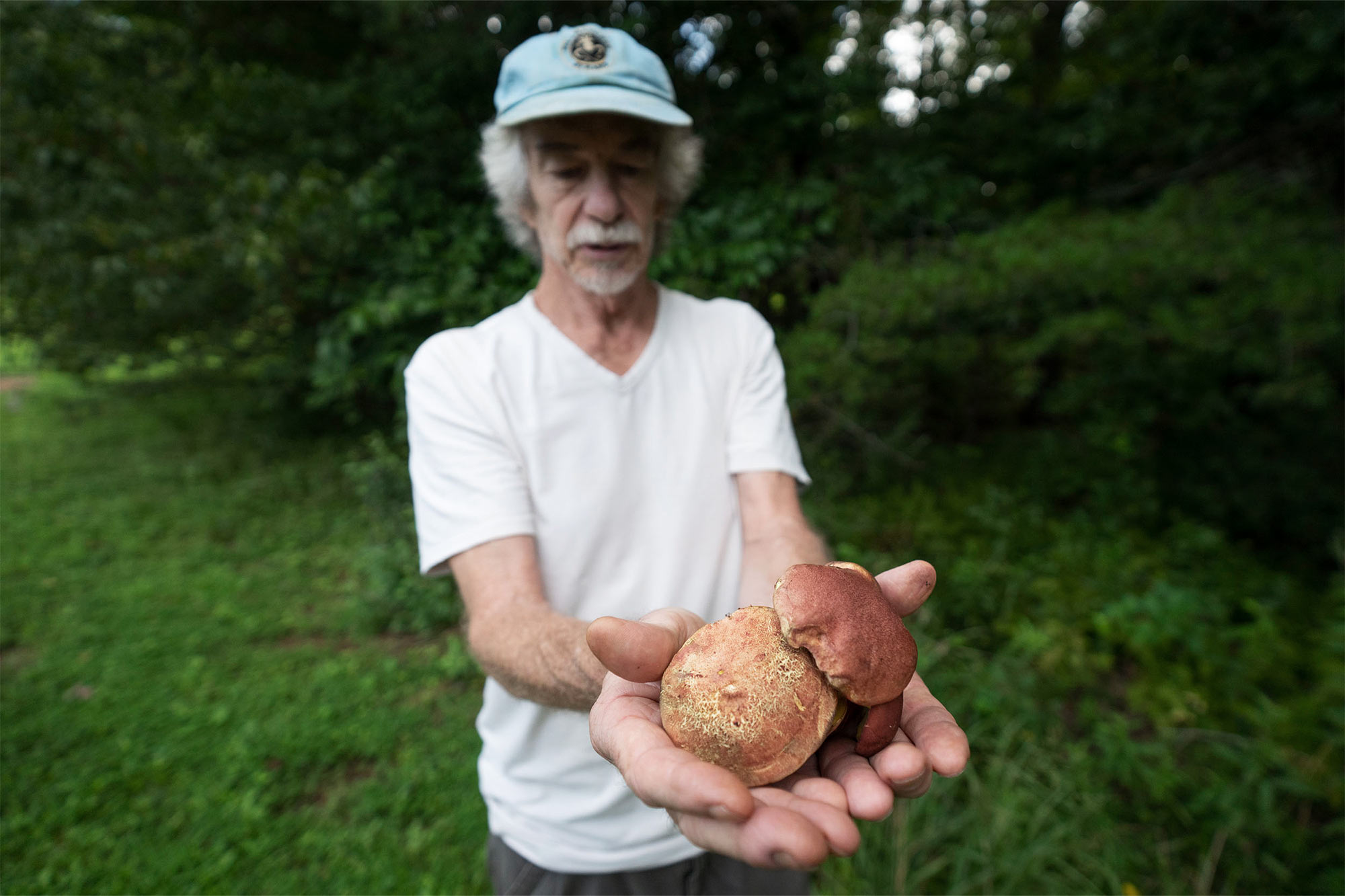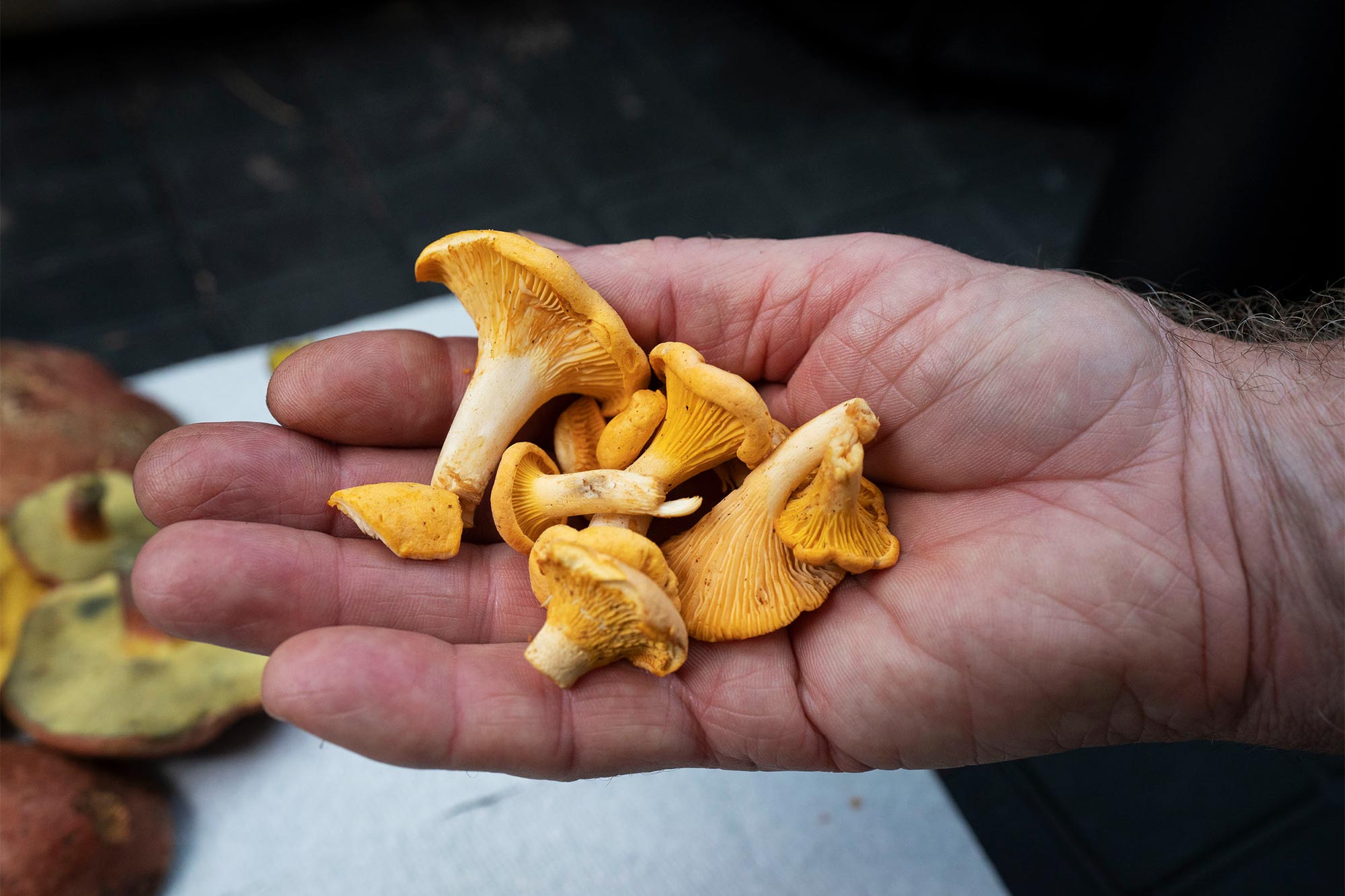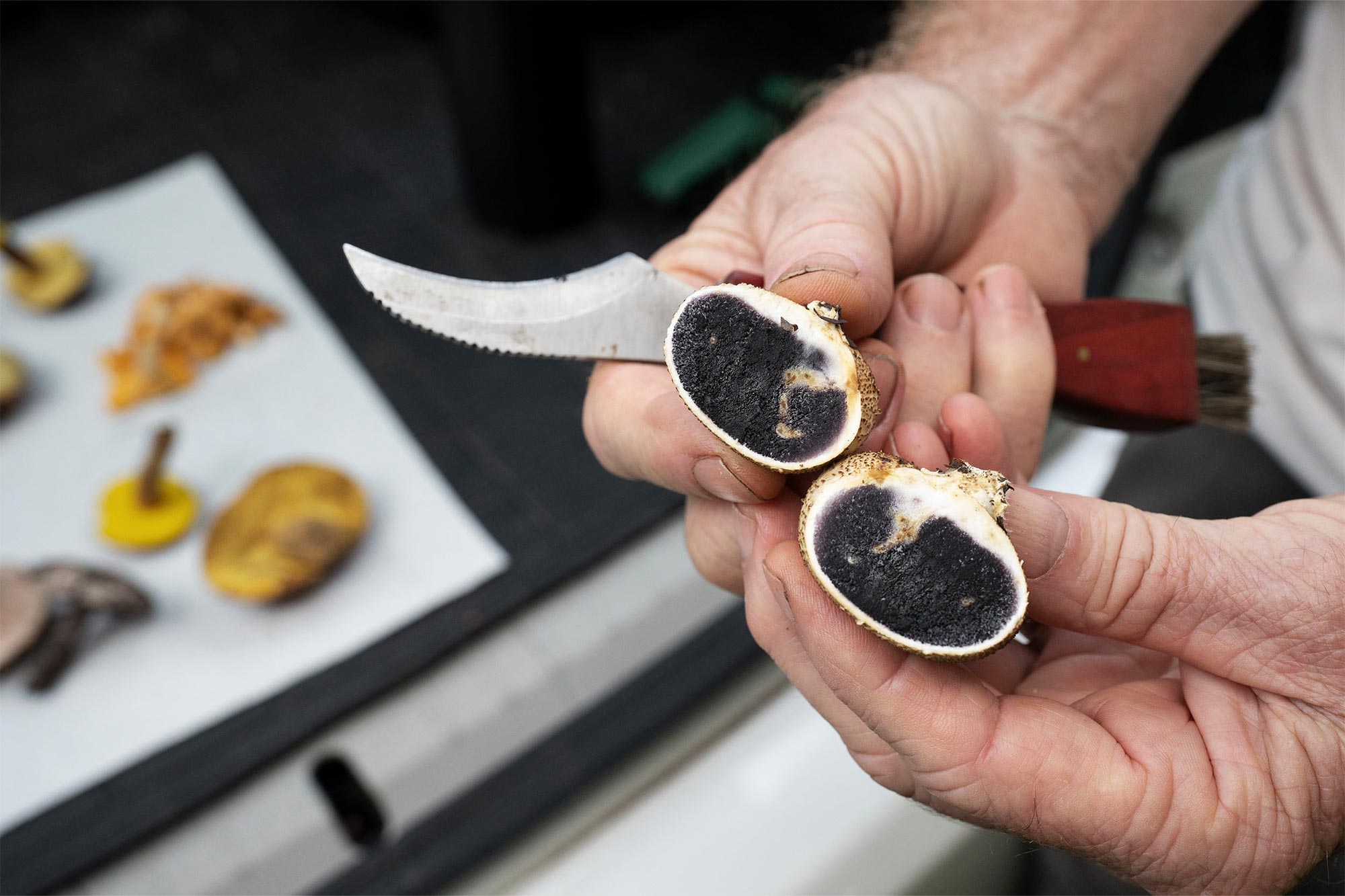A walk through the woods with Tim Andrus is its own education.
Andrus is a gardener who works in the pavilion gardens in the University of Virginia’s Academical Village, but his passion is hunting mushrooms. Every now and then he spies an interesting specimen on Grounds, but his most successful hunts unfold in more dense woods where he treats every find as both a scientific discovery and potential side dish.
Togged out on a recent summer day in dark cargo shorts, a light-colored T-shirt, a blue ball cap, an OGIO backpack and Tevas sandals, Andrus briskly walked the trails through Albemarle County’s woods, his eyes ranging on both sides of the path for fungi. He soon spotted a polypore mushroom on the trunk of downed pine tree.
The hike and the hunt are intertwined, each satisfying in itself.
“We are always hunting mushrooms,” he said. “And I am a botanist, too, so I am botanizing along the way. If I find a big rat snake, I will stop and pick it up. Any little frog I see I will try to identify it. I always try to figure out what species of plants are in the area, try to identify it into the genus if not the species.
“Same with birds, if we see an unusual bird, I have my binoculars with me. But for me, the main focus is always the mushrooms.”
This is not a solitary pursuit for Andrus, who hikes and hunts with his wife Shaz Andrus, a certified registered nurse anesthetist who works at both the UVA Health System and Martha Jefferson Hospital.













